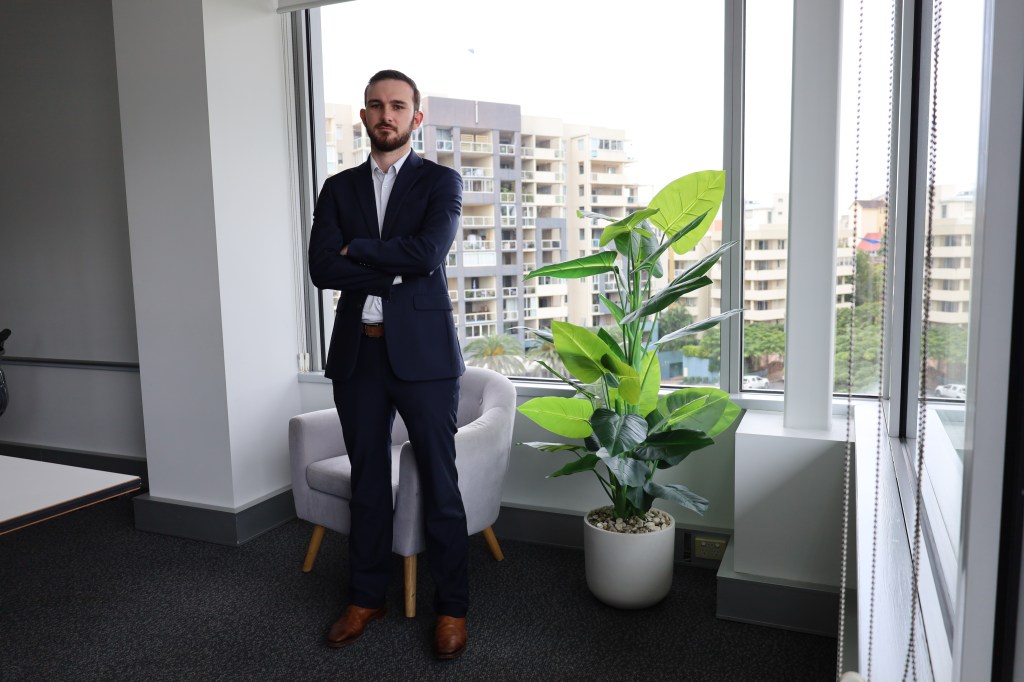The 24-year-old founder of Labrys, Australia’s largest blockchain consulting company, explains why a less dramatic trajectory to success has worked, but hiring is difficult.

Lachlan Feeney first encountered blockchain when he did a Year 10 economics project on Bitcoin. By the time he finished high school, he was obsessed. At university he quickly became known as ‘the blockchain guy.’
During Feeney’s second year of an information systems degree at the Queensland University of Technology, the price of Bitcoin began to soar. Over the course of 2017, Bitcoin went from being traded at US$1000 to US$20,000.
Feeney had started a student association for trading and investment and the talks he organised were filling up campus lecture halls, but his friends couldn’t understand why he wasn’t capitalising on the obvious opportunities.
“People were saying to me, ‘Blockchain is going crazy and everyone’s making so much money. You’re the blockchain guy, so why aren’t you doing something?’”
The 19-year-old CEO
Feeney took the hint and started his company Labrys with a university friend. Feeney was 19 and had the schedule of a busy CEO. He was studying full-time, working part-time at another blockchain company in Brisbane, running the trading club and overseeing his new company. With only 24 hours in the day available, something had to give. He decided to defer his university studies.
“The business was going well and I knew that the potential upside [of my company] was very big,” he says. “I have always believed that blockchain is going to be massive, and that it is the single biggest source of technology innovation since the internet. It didn’t seem like a bad idea to just take a pause on uni and see how the business goes. If it didn’t work out, I could always go back.”
He was grateful that his parents were supportive of his choice, despite not being tech enthusiasts themselves (his father, Paul Feeney used to race motorbikes and his younger brother, Broc Feeney, is a professional VH Supercars driver).
Happily, the calculated risk paid off. Labrys is now Australia’s largest blockchain consulting and development company and Feeney has been invited back to his university as a guest lecturer.
Not enough blockchain on campus
As the CEO of a rapidly growing company, one of Feeney’s bugbears is that universities aren’t teaching blockchain. Curriculums are simply not keeping up with the pace of tech innovations.
“To me it’s totally crazy that you can’t study blockchain at most universities,” he says. “In my mind, blockchain is bigger than machine learning, AI and VR, where there is significant coursework available. It’s a huge issue for us as a company, because we can’t hire people who are capable people. We basically hire people who are skilled in similar areas and then train them up. It slows down that progress of the industry.”
Labrys was originally conceived of as a product studio but there were a couple of glitches along the way. Within a couple of years, it switched to being a consulting services agency. Clients include ASX-listed Downer and some large gaming studios based in the United States. Feeney says he can’t divulge much more.
“A lot of the companies we’re working with don’t want to let anyone know that they’re working on Web 3 until something is ready for release,” he says.
A self-funded start-up
Labrys has not sold equity to venture capitalists. It is unusual for a Web 3 company to be almost entirely self-funded. Offers were made and turned down, which was sometimes difficult to do, says Feeney.
“In 2020 and 2021, market conditions were very favorable for raising capital,” he says. “We saw a bunch of blockchain companies pop up across Australia with crazy valuations. They were hiring an insane amount of people to build out their own products.”
In retrospect, Feeney is glad that his company took a different path. When conditions subsequently became less favourable due to the market downturn, he observed other blockchain companies being forced to execute mass layoffs. Another advantage for Labrys is that it will be able to self-fund its own product projects when the time is right, without any need to raise capital.
“I’ve seen a lot of blockchain startups who really only partner with a VC because they need the money. And perhaps the VC doesn’t quite get blockchain or Web 3. Or maybe the company has a brilliant idea, but they can’t get funding for it. I much prefer to be in a position where we get to decide which ideas are good and which ideas are not good.”
Labrys’ growth has been gradual rather than meteoric, which Feeney considers a good thing in light of the fact that he was still a teenager when he started the company.
“When I started Labrys, I didn’t have that business level knowledge of running a large-scale business, or even basic things like payroll. But it wasn’t like we got $10 million worth of funding when I was 19. We’ve built the team up organically over time.”
Feeney is now 24 and he already has five years’ worth of experience under his belt. He runs a team of almost 50 staff and he is certain that they are working on some of the most significant blockchain projects in the world.
Feeney has no regrets about spending his twenties with a level of responsibility that most people only encounter in their forties. He refers to his work as his “dream job,” and even after putting five 10-hour days most weeks, he continues to tinker with blockchain on the weekend. However, he is conscious that his age sets him apart from his industry peers.
“My beard definitely helps me look a little bit older than I am. I never usually tell people my age because even if people don’t intend it, there can always be some sort of subconscious bias.”